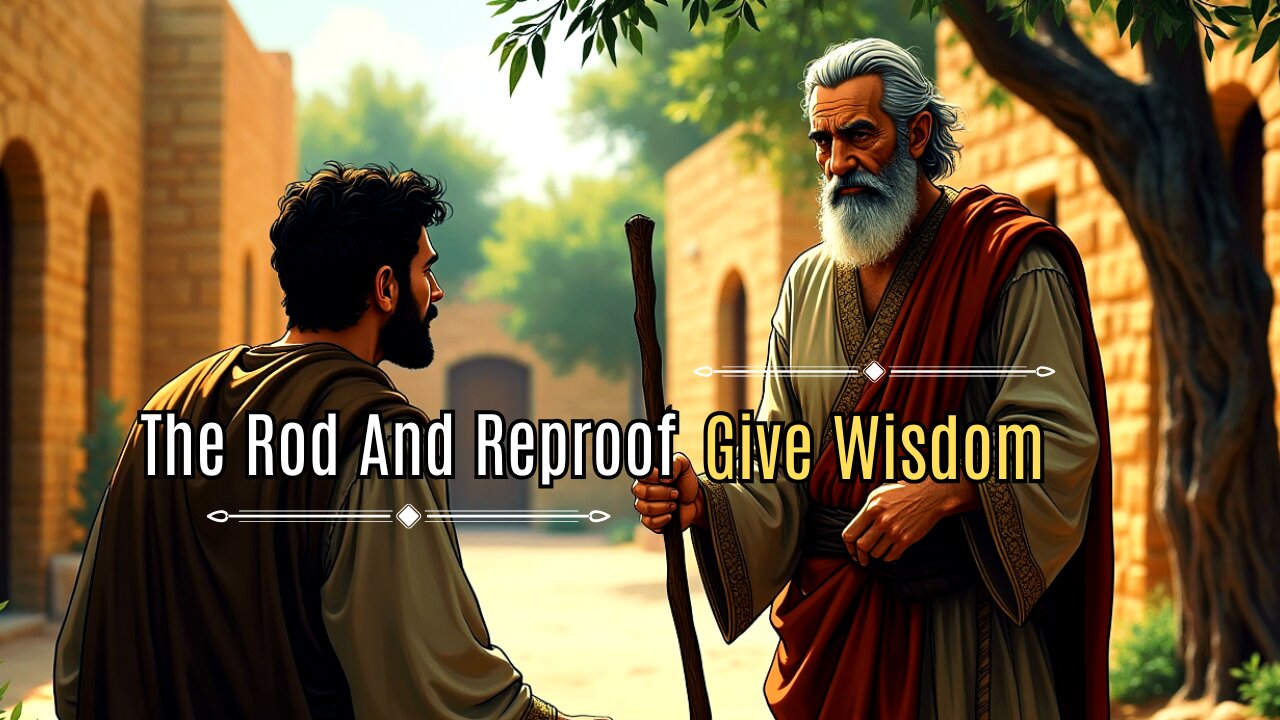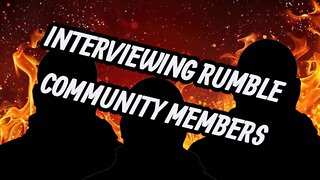Premium Only Content

Don’t Raise a Foolish Child
Summary - Wisdom literature within the Bible often contrasts two paths—one leading to insight and stability, the other to destruction and regret. This scripture in Proverbs shines a light on the critical role of guidance in shaping an individual’s future.
Within Proverbs 29, a recurring theme emerges: the long-term effects of teaching wisdom and of personal choices. The wisdom of this passage suggests that when children are left without correction, they risk developing patterns that lead to hardship, not only for themselves but for those around them, especially their parents. In ancient times, learning from one’s elders and mentors was essential for survival and success. A lack of instruction from parents or guardians resulted in poor judgment coming from the children, which in turn disrupted entire communities.
The message here is not about punishment, but about cultivating the kind of discipline that are the building blocks of character and resilience for the child. In today’s world, this wisdom is more than just relevant, but this teaching is essential. This scripture challenges us to consider how routine, daily structure and schedule, accountability, and guidance shape personal and societal growth within our children and future generations. True wisdom, which ultimately is knowledge applied in practical application, is not self-created. Wisdom is nurtured through correction and experience. There are many mistakes before achieving a desired goal. But through God and Christ’s guidance, that mentorship into wisdom by the Holy Spirit, we are assured that each generation will have the opportunity to build upon the strength of those before them as we lean into God’s presence and learn from His Word. God Bless You!
Music - Spring Mood / LP-Studio-music
-
 LIVE
LIVE
Joker Effect
2 hours agoINTERVIEWING Rumble Gaming community members: Viewbotting and how they see the current landscape.
452 watching -
 1:45:53
1:45:53
Nerdrotic
5 hours ago $9.99 earnedUnravelling the Secrets of Skinwalker Ranch | Forbidden Frontier #115
62.5K4 -
 41:56
41:56
Athlete & Artist Show
5 hours ago $0.74 earnedAustin Ekeler: Going From "0 Star Recruit" To Leading The NFL In TD's, New Fan App | FROM THE VAULT
15.6K1 -
 2:46:49
2:46:49
Barry Cunningham
10 hours agoNOW THEY FEAR US! | RFKJR STRIKES BACK | JD VANCE ON PRESIDENT TRUMP | AND MORE NEWS!
61.6K40 -
 LIVE
LIVE
Spartan
5 hours agoCharlotte Qualifier watch party + Ranked and Expedition 33
86 watching -
 6:09:54
6:09:54
bigbossrobinson
9 hours agoLIVE - DOUBLE IMPACT - RESIDENT EVIL 4 & METAL GEAR SOLID Δ: SNAKE EATER
29.2K1 -
 14:37
14:37
Colion Noir
10 hours agoCanadian Police Chief Urges Citizens To Comply With Home Invaders And Hide
76.7K93 -
 3:10:59
3:10:59
OVERKLOC
6 hours ago🔴LIVE - CHILL SUNDAY GAMING - WHO KNOWS WHAT WE'LL PLAY
17.3K -
 5:58:37
5:58:37
FrizzleMcDizzle
8 hours ago $0.63 earnedNightReign - Lies of P: Overture after - Come hang out
16.5K -
 1:18:54
1:18:54
Jeff Ahern
8 hours ago $12.14 earnedThe Sunday Show with Jeff Ahern
65.2K8